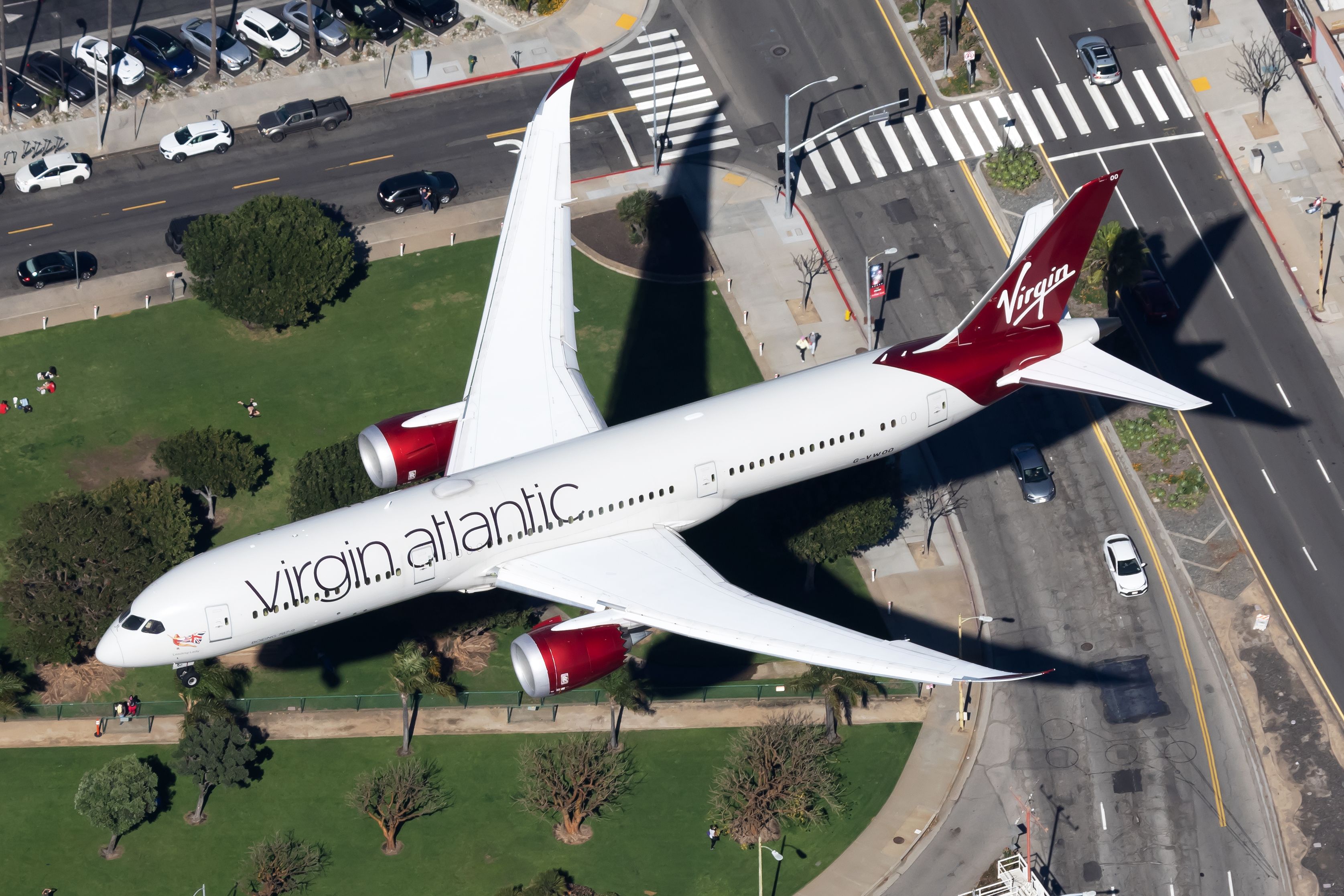In the past several years, demand for transatlantic travel has boomed. Americans have continued to show interest in traveling abroad, and every year, thousands boarded flights across the Atlantic Ocean to destinations across Europe. However, with a changing economic landscape, Americans might not be as quick to hop across the pond, according to Virgin Atlantic .
Slow down across the Atlantic London-based Virgin Atlantic is exiting a difficult time in its company history. Despite several years of high demand for flights between Europe and the United States, the airline has consistently lost money. In fact, the last time it turned a profit was long before the COVID-19 pandemic, in 2016.

To make matters worse, the airline was forced to take on massive loans during the pandemic, as it was denied government funds, unlike some of its rivals. However, according to the Financial Times , the airline finally reported an operating profit in 2024, a major milestone as the airline tries to turn its fortunes around. However, there might be more hard times ahead for Virgin and all airlines that rely on the transatlantic market, as Virgin warned of a slowdown in demand for transatlantic flights from the United States.
Virgin Atlantic's Chief Financial Officer Oli Byers explained: “...
started to see some signals that US demand had been slowing. We think that is quite a natural reaction to general consumer uncertainty.” This statement was made after major US carriers reported seeing a slowdown in domestic air travel demand, though they claimed this drop did not spread to demand for international flying.
Meanwhile, other major European carriers, like Lufthansa , Air France-KLM , and International Airlines Group (parent company of British Airways and Iberia), have also been closely monitoring the performance of their transatlantic services, but have yet to see a decline in demand for flights to the United States. Ben Smith, Chief Executive Officer of Air France-KLM explained: “It is concerning for us . .
. but as of today, we don’t see any material change in forward bookings.” Though the carriers have yet to encounter any meaningful drops in demand, the domestic slowdown happening in the United States could potentially spread to international travel as well.
In addition to posing a threat to US carriers, this would be difficult for Europe's global airlines as well. Estimates state that over half of these carriers' earnings come from transatlantic services. The transatlantic market is a fascinating one in the world of modern commercial aviation, with a huge variety of airlines and aircraft serving what is undeniably one of the most valuable aerial corridors in the world.
When flying from eastern Canada and the US to western Europe, flights can be as short as six hours, with barely time for a movie and a nap before landing.But what about at the other end of the time scale? As explored recently in an article by Simple Flying's Route Development Analyst, Dr James Pearson, the longest flight between Europe and the US in terms of scheduled block time this summer is Turkish Airlines' route from Istanbul to Los Angeles, which takes 14 hours and 10 minutes.Personally, I have never flown on a transatlantic flight of this length, but, at 11 hours and 10 minutes, my longest Europe-US flight between London Heathrow and San Francisco with United Airlines (UA900) was certainly quite the odyssey! What's been your longest transatlantic flight? Let us Changes in transatlantic demand could harm more than just legacy carriers Changes in demand for transatlantic flying could have a massive ripple effect that extends across many operators.
While airlines like Delta Air Lines, United Airlines, British Airways, and Lufthansa dominate flights over the Atlantic, there are also a lot of smaller players that don't even deploy widebody aircraft between the United States and Europe . For example, La Compagnie, a French business class airline, only flies two routes from Newark to Paris and Milan using the Airbus A321neo. Additionally, New York-based JetBlue also uses the narrowbody jet to cross the ocean, and other smaller operators like SAS or Aer Lingus could be hurt by weakening demand as well.
.
Technology

Virgin Atlantic Admits US Demand For Transatlantic Flights Is "Slowing"

After a few years of robust demand for transatlantic travel, demand might finally be slowing down.















